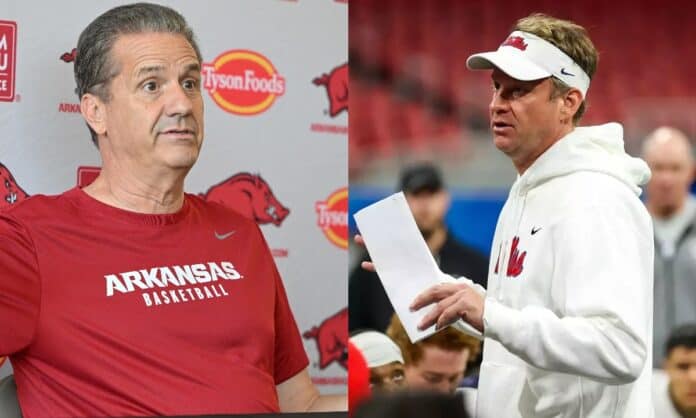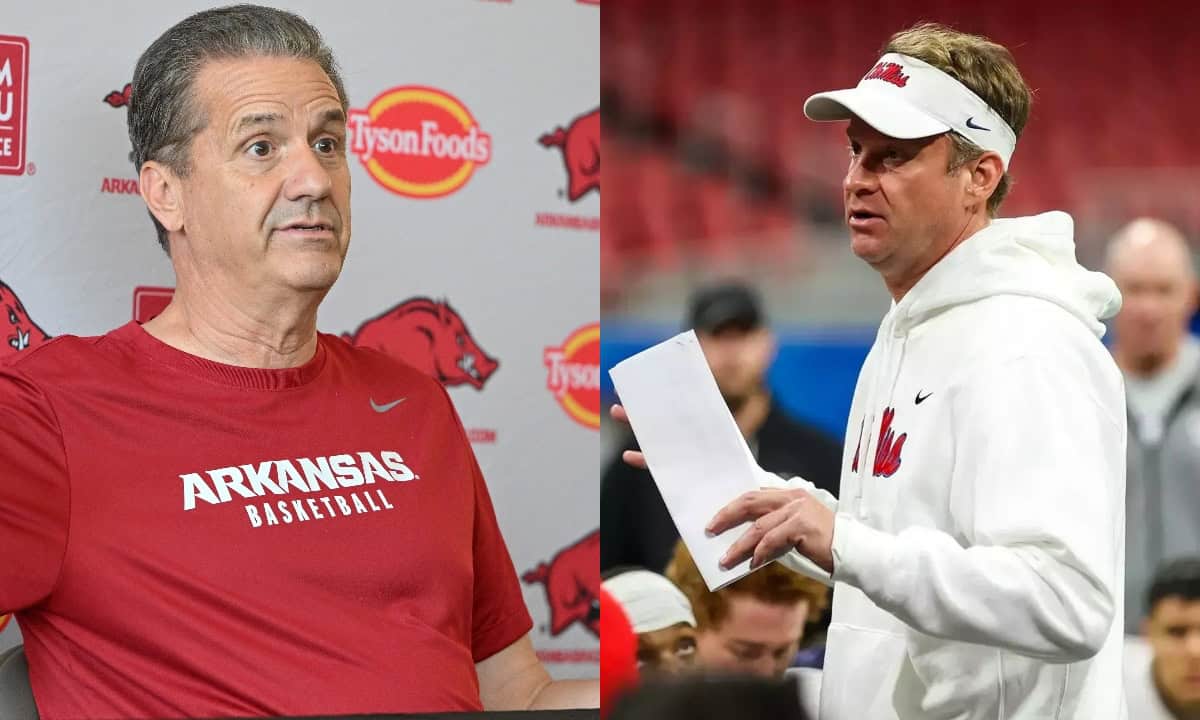 Photo Credit: Craven Whitlow / Mississippi Athletics
Photo Credit: Craven Whitlow / Mississippi Athletics
College basketball has been a rich man’s game for decades now, but the era of unfettered NIL money has taken that to the next level.
Courtesy of the power of Tyson chicken nuggets, Arkansas basketball is fortunate enough to be part of the exclusive club of 8-10 programs with NIL budgets close to or exceeding $10 million for this upcoming season. According to 247Sports in July, members of this “golden tier” include blue bloods like Kentucky, Duke and North Carolina as well as cash-happy upstarts like Texas Tech and BYU.
With the onset of revenue sharing this summer, schools are now allowed to directly distribute up to $20.5 million to players across all sports. Third-parties and NIL collectives can supplement those payments, but any package over $600 must serve a “valid business purpose” and pass through the clearinghouse run by the College Sports Commission.
The Razorbacks used their expansive war chest to return the quartet of DJ Wagner, Karter Knox, Trevon Brazile and Billy Richmond III from last year’s roster. Arkansas basketball coach John Calipari also added five-star freshmen Darius Acuff Jr. and Meleek Thomas into the fold alongside experienced transfer big men Nick Pringle and Malique Ewin.
Earlier in the summer, Calipari advocated for some major reforms to the transfer portal, most notably allowing players to transfer only once without penalty. After that, barring an exception like a coaching change, players would have to sit out a year.
This week, the Head Hog took things a step further.
John Calipari’s Latest NIL Reform Idea
As opposed to “traditional” NIL deals, which usually entail doing promotions for businesses, collectives are third-party conglomerates which essentially provide pay-for-play packages for student-athletes. The House settlement nearly killed off these big-money organizations, but after a litany of legal challenges, they seem to be here to stay – albeit within the guardrails of the CSC.
Coach Cal wants further restrictions, specifically on the types of players who could receive funding from these collectives.
He wants collectives to “only be involved with retention of your players,” Calipari said on the Nothing Personal podcast hosted by David Samson, a former MLB front office executive. “They cannot be involved in recruiting freshmen, they can’t be involved in recruiting transfers. They can’t give those guys deals when they’re coming in.”
New recruits and transfers would still get paid through revenue sharing and “real” NIL deals with businesses. The main goal of this measure would be to reduce the rampant tampering problem in college athletics. Texas Tech is in the golden tier for hoops bankrolling, but the Red Raiders have said the quiet part out loud on the football recruiting trail, as well.
“We’re going to poach some guys,” TTU general manager James Blanchard said shortly after landing five-star offensive tackle Felix Ojo and Arkansas legacy recruit Chase Campbell. “If people are only paying them $100,000-$200,000, I’m going to give him $300,000-$400,000 and go steal somebody.”
In Calipari’s ideal world, TTU’s loaded Matador Club collective would not be able to fund those poaching expeditions. The matador money could have been used for the reported $4 million deal for star forward JT Toppin’s return, but not for the football team’s second-ranked transfer portal class – or for softball pitcher Nijaree Canady, who was brought in from Stanford last year on a reported $1 million deal.
To be clear, Texas Tech is far from the only school being aggressive financially – if anything, you have to applaud their honesty. Don’t hate the player…
The proposed system would essentially incentivize teams to focus on keeping their best talents, and give them a better ability to do so by having a dedicated fund for that purpose. In conjunction with Calipari’s call for one-time transfers, these reforms would theoretically cut down on the massive flood of thousands of players into the portal each year.
If schools want to go out and poach talent from other programs, go for it – but it will come out of their all-sport “salary cap” or “real” NIL deals rather than the comparatively shadowy collectives.
Calipari is obviously focused on basketball in proposing these ideas, but their implementation would also have a major impact on the Arkansas football program.
Coach Cal Throws Sam Pittman a Lob
On paper, the move would be a massive boon for the Razorbacks. Given the Hogs’ current financial struggles in the football department, it may actually be a lifeline.
It’s no secret Arkansas football coach Sam Pittman has struggled to retain key players in recent seasons. Most notably this offseason, the trio of Jaylon Braxton, Luke Hasz and Patrick Kutas all transferred to Mississippi. Linebacker Chris “Pooh” Paul Jr. did the same last year.
These moves can’t be labeled purely as tampering, as Lane Kiffin’s program has seen much more success than Arkansas in recent years. It’s understandable for these players to seek out a winning team after the Hogs won just 10 games across the last two seasons. But the timing and common destinations certainly raise some eyebrows.
Calipari’s change would give the Hogs a much higher chance to retain top talent on the gridiron and away from Kiffin. Given the difficulty of wresting blue-chip recruits from their home states, retention is likely the program’s best route to building a winning roster. This year’s squad, in particular, is headlined by former transfers in their second year with the program, namely Taylen Green, Fernando Carmona, Xavian Sorey Jr. and Larry Worth III. Unicorn fifth-year returnee Cam Ball also anchors the defensive line.
Restricting collective money to retention could have increased the odds of players like Braxton or Kutas staying put.
Calipari’s reforms would add some sanity to the insane world of NIL, with the side effect of helping out the Hogs on both the hardwood and the gridiron.
***


***

